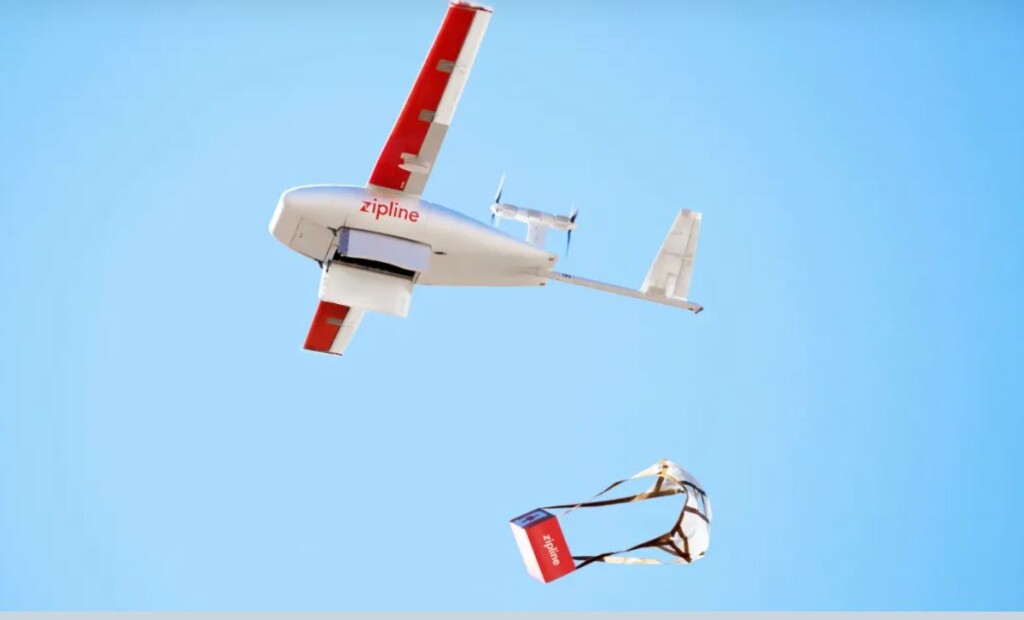Ensuring Healthcare Continuity in Ghana Through Drone Delivery Innovation
In light of disruptions to USAID-funded health programs, the Government of Ghana has taken a strategic step by partnering with Zipline, a global leader in autonomous drone delivery, to maintain uninterrupted access to essential health commodities. This innovative collaboration allows Ghana to reach more communities, especially in remote areas, without increasing government expenditure.
By utilizing Zipline’s expansive drone delivery network, the government has eliminated duplicative logistics costs that were previously incurred through USAID. This move reflects Ghana’s commitment to self-reliance, resilience, and sustainable healthcare systems.
Ghana Responds to USAID Halt with Scalable, On-Demand Healthcare Solutions
Following a stop-work order affecting USAID-backed projects, Ghana’s Ministry of Health quickly redirected efforts to deliver vital medications using Zipline’s reliable on-demand delivery system. These efforts have prioritized high-need health areas, including malaria testing and treatment, which are increasingly urgent due to shifting climate conditions such as heavy rains and changing weather patterns.
Zipline drones are also delivering other critical medications such as:
- Pain relief drugs
- Cough treatments
- Deworming medicines
- Nutritional supplements
Each Zipline hub can complete hundreds of drone flights daily, allowing rapid movement of supplies that would otherwise remain stuck in storage facilities. This capability ensures that patients in rural or underserved regions continue to receive timely medical care.

Expanding Access Across Northern Ghana
Currently, Zipline is operating across Ghana’s Northeast, Northern, and Eastern Regions, with active discussions to broaden the service to other parts of the country. In just the past two months, Zipline has scaled up its deliveries by 20–50%, showing impressive agility and responsiveness to public health demands.
Rather than grappling with complex distribution networks or prolonged supply chain delays, Regional Medical Stores have centralized logistics through Zipline. This shift allows healthcare facilities to request and receive supplies on-demand—enhancing efficiency, reducing delivery times, and eliminating waste.
Enhancing Supply Chain Resilience Without Extra Spending
What sets this initiative apart is its cost-efficiency. The Government of Ghana pays a flat monthly fee for unlimited deliveries under its agreement with Zipline. This fixed-cost model prevents budget overruns while increasing distribution capacity.
More importantly, it enables nationwide health system savings by removing redundant transport and storage processes that previously drained public health budgets. These savings are redirected into strengthening health infrastructure and improving patient outcomes across Ghana.
Voices from the Frontline: Zipline’s Impact on Healthcare Delivery
Healthcare professionals in the field are already seeing tangible benefits from this partnership. Comfort Addai Fofie, a staff midwife at Jadema Health Centre in the Northeast Region, praised the initiative:
“Zipline’s support in delivering essential medical supplies, including their recent delivery of much-needed drugs to our facility, has been incredibly helpful in enabling us to discharge our duties effectively. Their timely deliveries and excellent collaboration have made a significant impact on our work. We’re truly grateful to the team for their continued efforts—they mean a lot to us in our line of duty.”
This sentiment is echoed across several healthcare centers where Zipline has become a critical component in meeting daily health demands.
Zipline and Ghana: A Model for Digital Health Innovation in Africa
Daniel Kwaku Merki, Head of Zipline Ghana, highlighted the broader significance of the collaboration:
“Ghana’s proactive approach to mobilising domestic resources and embracing innovative delivery solutions exemplifies its commitment to building a robust health system. This continued collaboration with Zipline is a clear example of how Ghana is transforming a challenging situation into an opportunity to build a more self-reliant and cost-effective health system – one that ensures critical care reaches every corner of the nation.”
By consolidating deliveries and leveraging technology, Ghana has created a digital health infrastructure that not only addresses current disruptions but also lays the groundwork for future resilience.
Strengthening National Health Systems Through Smart Logistics
This Zipline initiative supports broader national objectives, including:
- Maximizing healthcare investments
- Reducing system-wide inefficiencies
- Expanding access to underserved populations
- Strengthening public trust in health delivery systems
It aligns with Ghana’s long-term vision for sustainable economic growth and healthcare modernization. The ability to deliver medications, diagnostics, and other health essentials rapidly and reliably puts Ghana at the forefront of health tech innovation in Africa.
Conclusion: Turning Disruption into Opportunity
Ghana’s collaboration with Zipline demonstrates how crisis-driven innovation can lead to transformative change. By embracing drone logistics, the country has strengthened its supply chain resilience, ensured continuous access to critical medical supplies, and optimized resource allocation—all without increasing public spending.
This success story offers a replicable model for other African nations navigating similar health system challenges. With a focus on smart partnerships and digital infrastructure, Ghana is showing the world how innovation can drive public health forward.







